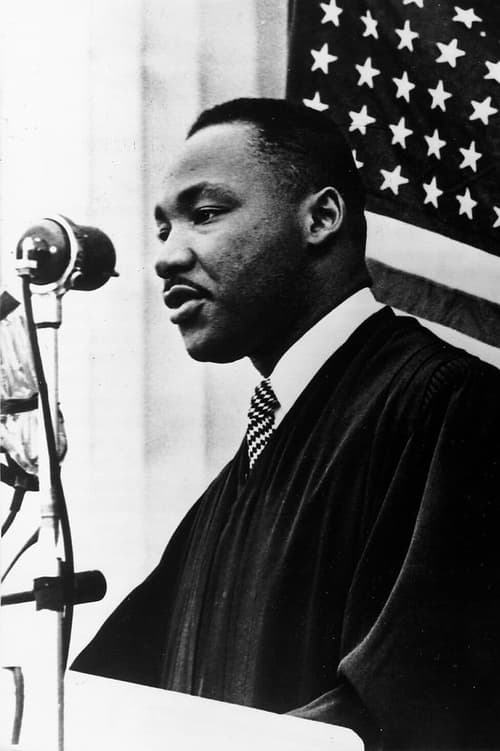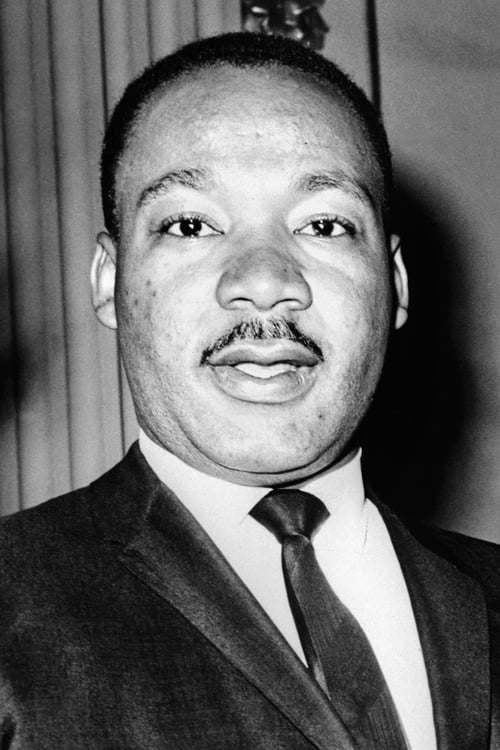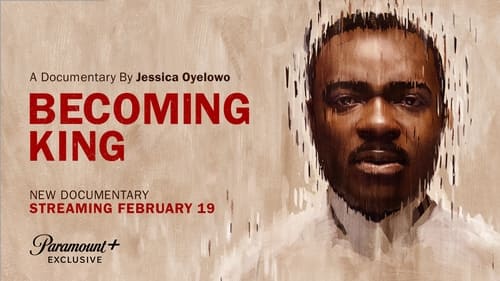
Self (archive footage)
A look at British actor David Oyelowo's journey to playing Civil Rights activist Dr. Martin Luther King Jr. in Ava DuVernay's acclaimed 2014 biopic Selma, based on the 1965 Selma to Montgomery voting rights marches.

"Betye Saar: Drifting Toward Twilight" covers renowned American artist Betye Saar’s large-scale work “Drifting Toward Twilight”—recently commissioned by The Huntington— a site-specific installation that features a 17-foot-long vintage wooden canoe and found objects, including birdcages, antlers, and natural materials harvested by Saar from The Huntington’s grounds. This film captures the artist's process in preparation for her upcoming exhibition, while also homaging Betye's life and work throughout her career. We are producing this project in collaboration with Betye's studio, Roberts Project, and Sola Saar Augusston, granddaughter of Betye and co-curator of the exhibit for the Huntington Museum. It will be exhibited in an annex next to the artist's piece within the Huntington's Virginia Steele Scott Galleries of American Art.

Self (Archive Footage)
In a last-ditch effort to save earth, a man sacrifices himself and is forced to relive a series of suppressed memories that become smeared by the detonation of a stellar bomb. This paranormal explosion of thoughts begin to blur the lines between reality and fiction; the only way out is forward.
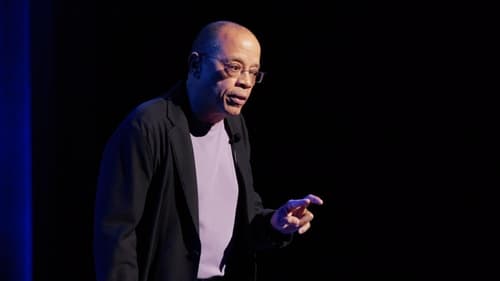
Self (archive footage)
Jeffery Robinson's talk on the history of U.S. anti-Black racism, with archival footage and interviews.

Self (archive footage)
Explora el legendario Harlem Cultural Festival celebrado en los Estados Unidos en 1969. En él se rindió homenaje a la cultura y música afroamericana, además de promover el 'black pride' y la unidad entre personas de una misma raza.

Himself
No person has transformed a race’s social standing as Martin Luther King Jr. He transcended racial barriers, But the quest for equality came with consequences. 1968. April 4th. A day that changed the landscape of society forever.
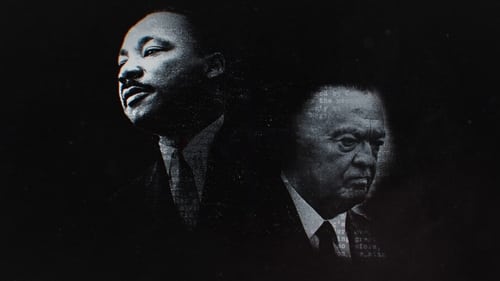
Self (archival footage)
"Martin Luther King y el FBI" pone en evidencia la fuerza que Martin Luther King tenía y la amenaza que esto suponía para el gobierno norteamericano. Lo consideraban "el negro más peligroso en América".Martin Luther King es conocido en todas partes del mundo. En todos los rincones del planeta han escuchado la historia de uno de los activistas por los derechos civiles de los negros que más ha conseguido hasta el momento. Era capaz de mover masas como si de una estrella de rock se tratase y su discurso "tengo un sueño" es conocido por todos pero, ¿cómo lo veía La casa blanca y qué supuso para él todo esto?
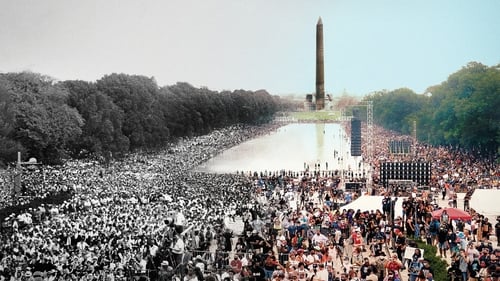
Self (archive footage)
El escritor, periodista, historiador y biógrafo presidencial ganador del Premio Pulitzer John Meacham ofrece sus conocimientos oportunos e invaluables sobre el momento político e histórico actual del país al examinar su pasado. Basado en su bestseller de 2018 del mismo nombre.

Through clippings, the film draws a narrative line between the construction of racism in Brazil and the United States, having as base the European invasion of the continent, police violence, the genocide of the black people, the massacre of indigenous peoples, religious violence, the criminalization of funk music, structural racism in art and education, the importance of quota policy and the need urgent historical repair as a commitment by the Brazilian state to the black people.
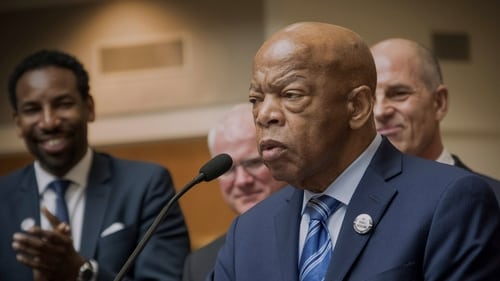
Self (Archival Footage)
The timely biopic focuses on John Lewis’ longstanding prominence as a civil rights champion and his continuing crusade for racial and social equality. The documentary illuminates the 80-year-old Congressman’s life as it chronicles the moments on the extraordinary journey that have shaped his place in history and make him such a galvanizing figure today as protests circle the globe. Lewis’ schedule has increased ten-fold as he has become the go-to figure for TV news shows, podcasts and newspapers and magazines from the Washington Post to Vanity Fair, commenting on and leading the way forward through today’s worldwide protests and demonstrations.

Self (archive footage)
The timely biopic focuses on John Lewis’ longstanding prominence as a civil rights champion and his continuing crusade for racial and social equality. The documentary illuminates the 80-year-old Congressman’s life as it chronicles the moments on the extraordinary journey that have shaped his place in history and make him such a galvanizing figure today as protests circle the globe. Lewis’ schedule has increased ten-fold as he has become the go-to figure for TV news shows, podcasts and newspapers and magazines from the Washington Post to Vanity Fair, commenting on and leading the way forward through today’s worldwide protests and demonstrations.
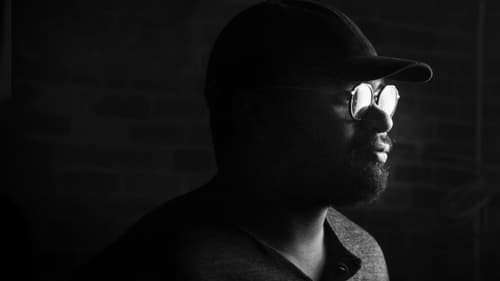
Self (archive footage)
In a collection of intimate interviews with some of America's most provocative black conservative thinkers, Uncle Tom takes a unique look at being black in America. Featuring media personalities, ministers, civil rights activists, veterans, and a self-employed plumber, the film explores their personal journeys of navigating the world as one of America's most misunderstood political and cultural groups: The American Black Conservative. In this eye-opening film from Director Justin Malone and Executive Producer Larry Elder, Uncle Tom examines self-empowerment, individualism and rejecting the victim narrative. Uncle Tom shows us a different perspective of American History from this often ignored and ridiculed group.

Self (archive footage) (uncredited)
Cuatro excombatientes afroamericanos - Paul (Delroy Lindo), Otis (Clarke Peters), Eddie (Norm Lewis) y Melvin (Isiah Whitlock, Jr.) - regresan a Vietnam en busca de los restos del jefe de su escuadrón, caído en combate (Chadwick Boseman), y la promesa de un tesoro escondido. Junto al hijo de Paul (Jonathan Majors), se enfrentarán a obstáculos naturales y humanos, y constatarán los estragos causados por la inmoralidad de la guerra de Vietnam.

Self (archive footage)
John F Kennedy was one of America's greatest presidents. He was the voice of the people who was a natural public speaker and a cool calm figure in front of the cameras. His influence helped push America through the most dangerous moments of the cold war, diffusing what could have been world nuclear destruction. But in November 1963, his life would come to a devastating end through the hands of an assassin. But who would kill one of the most popular presidents? Why was he a target? Join us as we investigate the life and career of JFK and ask the question...Who was really behind the killing of JFK?

Self (archive footage)
For one week in February 1968, Johnny Carson gave up his chair to Harry Belafonte, the first time an African-American had hosted a late night TV show for a whole week.

"England 79" - 17 scenes from Great Britain the winter of discontent, 1979.

Self (archive footage)
Denominado como el "enemigo del pueblo" por el actual presidente de los Estados Unidos, Donald Trump, el periodismo en Norteamérica se encuentra en horas bajas. Mentiras, "fake news" (noticias falsas), propaganda y tretas verbales amenazan con destruir lo poco que queda de honestidad en la Primera Enmienda. Mike Wallace representó durante más de cinco décadas la panacea del periodismo tal y como se concibió en sus orígenes, con un estilo duro y sin concesiones que le convirtió en uno de los entrevistadores más importantes de la historia de su país. Este documental explora su legado con la intención de recordar a las nuevas generaciones por qué el periodismo es uno de los pilares fundamentales de la democracia pese a los esfuerzos que algunas figuras públicas realizan a diario para desmentir este hecho.
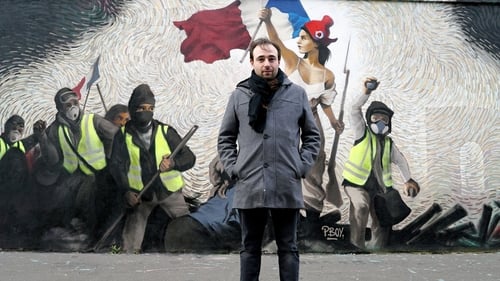
Self - Civil Rights Activist (archive footage)
Thoughts of a diversity of public and private citizens on the virtues of democracy, its faults, its decadence, its fall and the rise of populism.

Himself (archive footage)
He counseled presidents and popes, served on corporate boards and infuriated Richard Nixon. He was one of the only friends to whom Ann Landers turned for advice. During his 35 years as president of the University of Notre Dame, Theodore Hesburgh became one of the most influential and inspiring people of the 20th century.
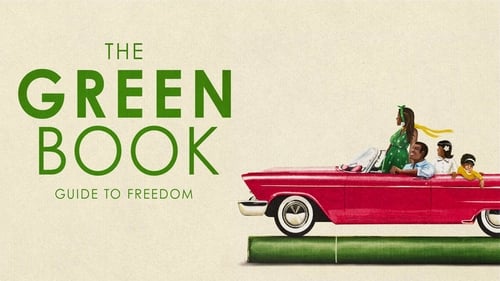
Self - Civil Rights Activist (archive footage)
In 1936, Victor H. Green (1892-1960) published The Negro Motorist Green Book, a book that was both a travel guide and a survival manual, to help African-Americans navigate safe those regions of the United States where segregation and Jim Crow laws were disgracefully applied.
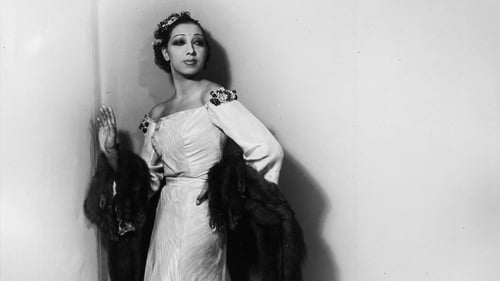
Self (archive footage)
¿Cómo una pobre niña negra de Missouri se convirtió en la Reina de París, antes de unirse a la Resistencia Francesa y finalmente crear la familia de sus sueños “La Tribu Arco Iris”, adoptando a doce niños de cuatro rincones del mundo? Esta es la fabulosa historia de la primera superestrella negra, Josephine Baker.

Self (archive footage) (uncredited)
A democracy should protect its most vulnerable citizens, but increasingly the United States is failing to do so. This investigation blends the insights of experts with the experiences of citizens of the Rust Belt in the Midwest where the steel industry once flourished, but where closures and outsourcing have left urban areas desolate. It is here where Donald Trump finds some of his most fervent supporters.

Self (archive footage)
"Rigged" shows viewers just what Republicans did – and continue to do – from creating new barriers to voter registration, to purging American citizens from the voting rolls without notice, to new and deliberate impediments to casting a vote. In addition, the film shows how GOP activists developed an elaborate but false narrative of widespread voter fraud in order to justify the necessity for new and draconian voting restrictions.
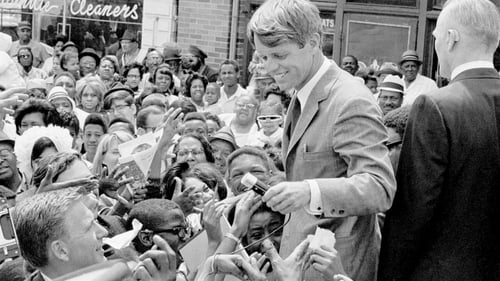
Self (archive footage)
The Tet Offensive during the Vietnam War, the Civil Rights Movement, the May events in France, the assassinations of Martin Luther King and Robert F. Kennedy, the Prague Spring, the Chicago riots, the Mexico Summer Olympics, the presidential election of Richard Nixon, the Apollo 8 space mission, the hippies and the Yippies, Bullitt and the living dead. Once upon a time the year 1968.
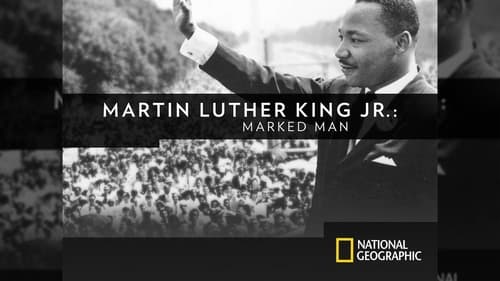
Archival Footage
National Geographic documentary on Martin Luther King Jr. helps drive change in the United States in the face of bitter opposition, not least from opponents within the U.S. government; King is subjected to a fierce campaign of intimidation by J. Edgar Hoover's FBI.
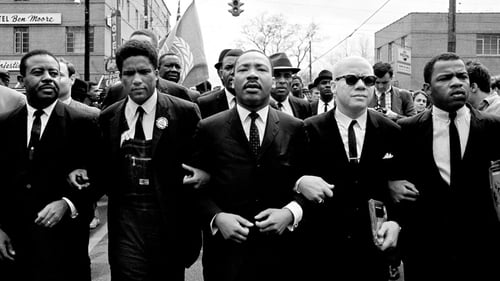
Himself
This feature documentary deeply explores Dr. King, his experience, his legacy and the Movement at large through key events – The Montgomery Bus Boycott, The Birmingham Campaign, March on Washington, the Selma Movement and Assassination and Legacy.

Self (archive footage)
On the anniversary of Martin Luther King's death, Sir Trevor McDonald travels to the Deep South of America to get closer to the man who meant so much to him.
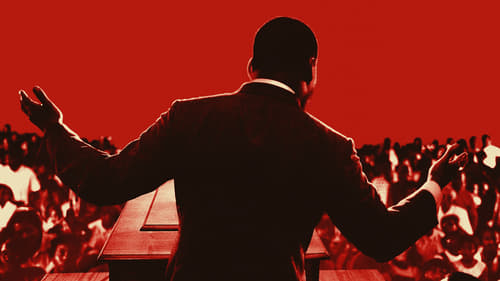
Self (archive footage)
Documental sobre los últimos 18 meses de vida del líder de los movimientos civiles Martin Luther King Jr.
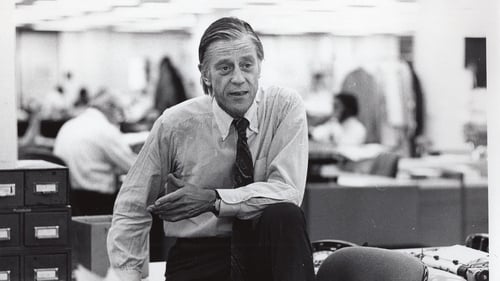
Self (archive footage)
Un retrato íntimo del editor ejecutivo del Washington Post, Ben Bradlee, trazando su notable ascenso de un joven muchacho de Boston afectado por la poliomielitis a una de las figuras periodísticas más pioneras y consecuentes del siglo XX.

Self (archive footage)
Documentary film on events that happened on August 28th in African-American history, shown at the Smithsonian African-American History Museum.
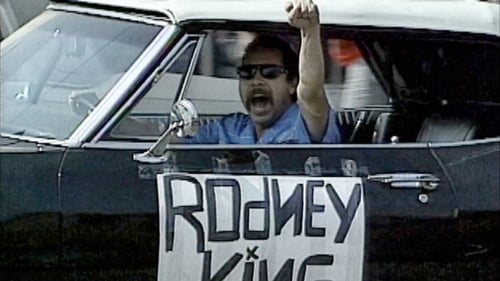
Himself (Archival Footage)
An in-depth and provocative look at the 1992 Los Angeles riots exploring the roots of civil unrest in California and the relationship between African Americans and LAPD.
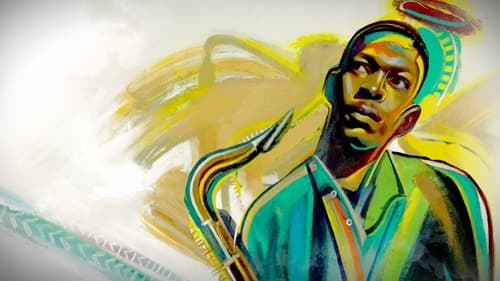
Self - Civil Rights Activist (archive footage)
Un relato de la vida del genial músico de jazz John Coltrane (1926-67), un saxofonista dotado, un pensador de talento extraordinario cuya obra, original y vanguardista, ha impactado e influido a personas de todo el mundo. Una historia sobre la capacidad que tiene la música para entretener, inspirar y transformar.
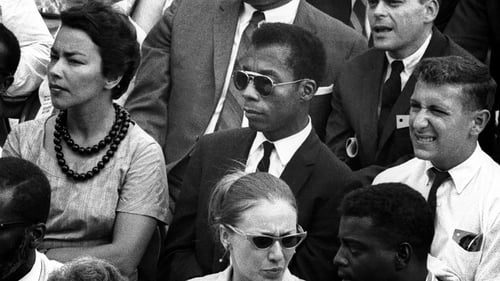
Self (archive footage)
A través de las palabras del escritor y activista afroamericano James Baldwin conocemos uno de los grandes problemas de la sociedad estadounidense: el conflicto racial entre la población blanca y la población negra en los Estados Unidos. Este problema social y político forma parte de la historia norteamericana, pero también es una preocupación actual.

Self (archive footage)
Una mirada en profundidad al sistema carcelario en los Estados Unidos y cómo revela la historia de la nación de la desigualdad racial.

Self (archive footage)
Historian Andrew Cohen discusses Robert Drew's 1963 documentary Crisis: Behind a Presidential Commitment.
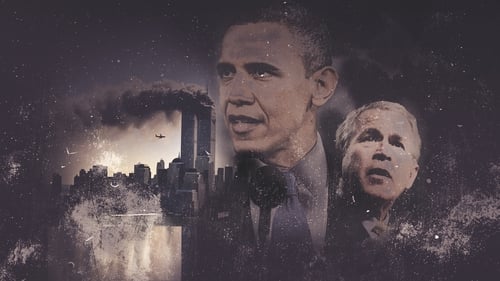
Self (archive footage)
A look at the War on Terror and the threat it's causing to our civil liberties and political discourse. Academy Award nominee James Cromwell presents Janek Ambros' directorial debut. The feature doc tackles the War on Terror's impact on civil liberties and the strange coalition it's creating between the progressive left and libertarian right. The doc examines the NSA, drones, the war on journalism and other encroachments on civil liberties started by the Bush era and expanded by the Democratic establishment.
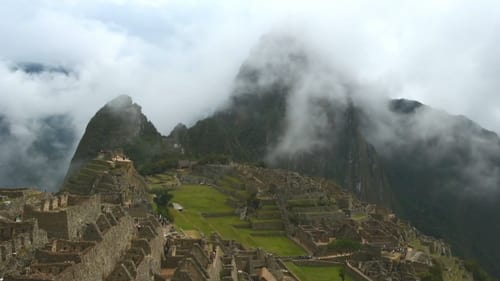
Self (archive footage)
'Unity' es un documental que explora el por qué de la (supuesta) imposibilidad de que los seres humanos nos llevemos bien entre nosotros. Su director y guionista, Shaun Monson, lanza una propuesta esperanzadora: ¿y si mutásemos de la premisa que el ser humano debe 'matar para vivir' a la de 'amar para vivir'? ¿Es posible ese cambio? Cien celebridades forman un elenco único (y unido) y exploran esa posibilidad esbozada.
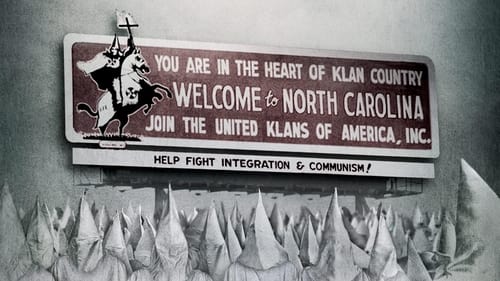
Self (archive footage)
Investigates the reasons North Carolina, long seen as the most progressive state in the South, became home to the largest Klan organization in the country, with more members than all the other Southern states combined, during the 1960s.
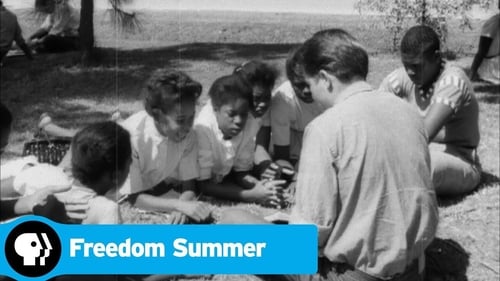
Self (archive footage)
In the summer of 1964, more than 700 students descended on violent, segregated Mississippi. Defying authorities, they registered voters, created freedom schools, and established the Mississippi Freedom Democratic Party. Fifty years later, eyewitness accounts and never-before-seen archival material tell their story. Not all of them would make it through.

Self (archive footage)
Speech-making is the art of persuasion. Well-honed rhetoric appeals not just to the mind, but to the heart and, deeper down, in the guts. Examining the speeches that provoked radical change, surprised pundits or shocked listeners, poet Simon Armitage dissects what makes a perfect speech. Simon gets the inside story behind some of the famous speeches of the modern age, talking to Tony Blair's speechwriter, to Earl Spencer on his controversial address at his sister's funeral and the woman who challenged the rioters in Hackney. We hear how Peter Tatchell confronted the BNP, Paul Boateng on how Enoch Powell's divisive speech personally affected him as a child, and Colonel Tim Collins, whose charge was to motivate his troops on the eve of the Iraq war. Simon discusses the nuts and bolts of speech writing with Vincent Franklin, aka the blue-sky thinking guru Stuart Pearson from The Thick of It, and gets tips on powerful delivery from actor Charles Dance.

Self
Documentary commemorating the 50th anniversary of Martin Luther King's March on Washington, a pivotal moment in the Civil Rights Movement in the United States. The film tells the story of how the march for jobs and freedom began, speaking to the people who organised and participated in it. Using rarely seen archive footage the film reveals the background stories surrounding the build up to the march as well as the fierce opposition it faced from the JFK administration, J Edgar Hoover's FBI and widespread claims that it would incite racial violence, chaos and disturbance. The film follows the unfolding drama as the march reaches its ultimate triumphs, gaining acceptance from the state, successfully raising funds and in the end, organised and executed peacefully.
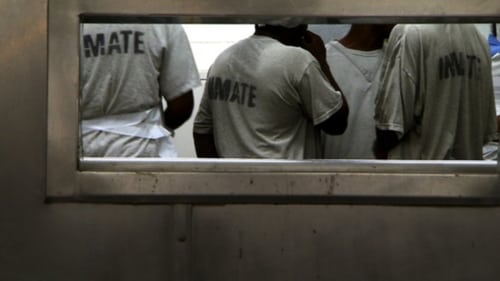
Self (archive footage) (uncredited)
Documental que disecciona las entrañas de la máquina de guerra estadounidense. La batalla contra las drogas, una guerra menos visible, pero que está costando más vidas, la destrucción de más familias, y convirtiéndose en un azote en el alma de la sociedad estadounidense
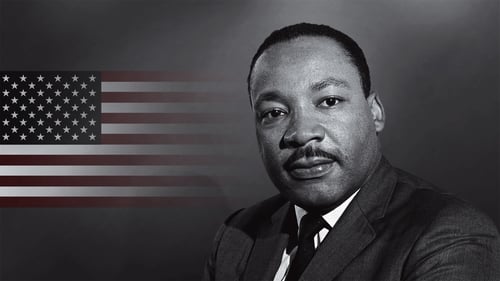
Self (archive footage)
Relive an unspeakable tragedy detailed with unforgettable images, videos, and recordings only recently rediscovered.

Self (archive footage)
La extraordinaria vida de Ethel Kennedy, esposa del asesinado senador Robert F. Kennedy, a través de las revelaciones y las anécdotas de quien mejor la conoce: su propia familia.
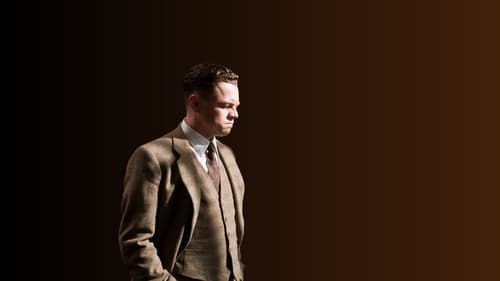
Self (archive footage) (uncredited)
En 1924, con sólo 29 años, Edgar Hoover fue nombrado director general del FBI para que reorganizara la institución. Ocupó el cargo hasta su muerte en 1972, sobreviviendo a siete presidentes, alguno de los cuales intentó inútilmente destituirlo. Los archivos que Hoover guardaba celosamente, llenos de secretos inconfesables de importantes personalidades, lo convirtieron en uno de los hombres más poderosos y temidos de la historia de los Estados Unidos.

Self (archive footage) (uncredited)
2012: Time For Change is a documentary feature that presents ways to transform our unsustainable society into a regenerative planetary culture. This can be achieved through a personal and global change of consciousness and the systemic implementation of ecological design.
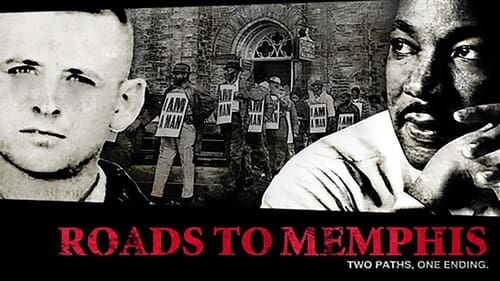
Self (archive footage)
The wildly disparate yet fatefully entwined stories of assassin James Earl Ray and his target, Dr. Martin Luther King Jr.
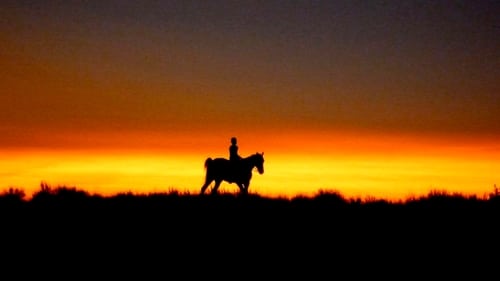
Himself (archive footage)
The evolution of the depiction of Native Americans in film, from the silent era until today, featuring clips from hundreds of movies and candid interviews with famous directors, writers and actors, Native and non-Native: how their image on the screen transforms the way to understand their history and culture.
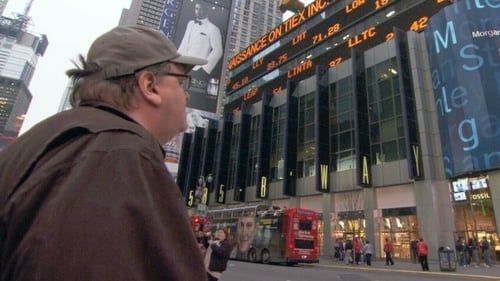
Self (archive footage)
El siempre polémico Michael Moore denuncia el sistema capitalista de Wall Street, adoptando un punto de vista que analiza la crisis finaciera mundial y la economía estadounidense en plena transición entre la administración entrante de Barack Obama y la saliente de George W. Bush.

Self (archive footage)
Broadcast journalist Tavis Smiley hits the road in 2008 with friends Cornel West, BeBe Winans and other prominent African Americans to explore the contemporary experiences of black men and to ask them: "What do you stand for?" Set against Barack Obama's rise to presidential power, Smiley and his fellow travelers offer diverse perspectives on African Americans' soul music, historic struggle for equality, current race relations and more.
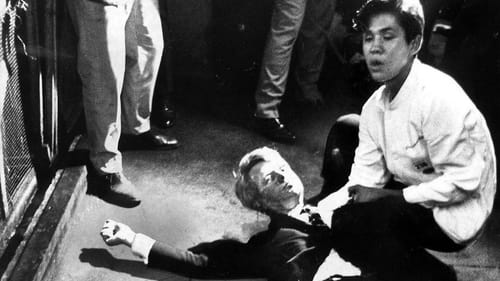
Self (archive footage)
As with the plot to frame Lee Harvey Oswald, the verdict on Robert Kennedy's murder was decided even before the case went to court. A lone, deranged assassin has always been the best way to explain away, and distract attention from, much more intricate conspiracies. This landmark documentary summarizes the best evidence that has ever emerged, contradicting the official story of Robert Kennedy's assassination. While sold by the corporate media as an open and shut case against "Palestinian radical" Sirhan Sirhan, this riveting film presents meticulously researched evidence, by several independent investigators, exposing outrageous procedure violations, blatant forgeries, and unexplained dismissals on the part of the authorities, revealing a world-class cover-up.

Self (archive footage)
On April 5, 1968, soul legend James Brown performed a concert in Boston that many say shielded that city from the kinds of devastating riots that ripped other cities apart after the assassination of Martin Luther King, Jr.

Self (archive footage)
A new investigative documentary exploring the controversies surrounding the assassination of Bobby Kennedy on June 5, 1968 as he looked set to challenge Nixon for the White House. Munir Sirhan tells how his brother Sirhan has never been able to remember the shooting. Sandra Serrano speaks for the first time in forty years about the girl in the polka-dot dress fleeing the scene, yelling "We shot him! We shot him!" And Dr. Herbert Spiegel of Columbia University describes how Sirhan was hypnotically programmed to kill Robert Kennedy.
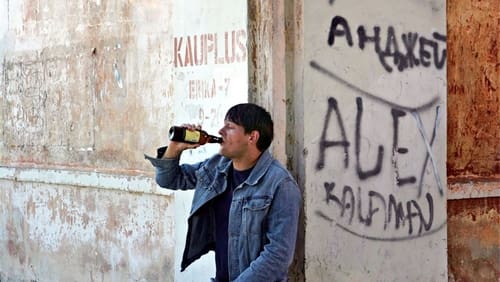
(archive footage) (uncredited)
The well-known but out-of-luck actor Jan Uuspõld sets out to hitchhike from Tallinn through Estonia to Tartu.

Himself (archive footage)
King: Man of Peace in a Time of War documents the work Martin Luther King did in attempting to bring peace to people during the turmoil of the Vietnam War and the Civil Rights Movement. The film includes interviews with contemporaries such as Jesse Jackson, and military experts like Colin Powell.

Self (archive footage)
A look at the role of the Buckeye State in the 2004 Presidential Election.
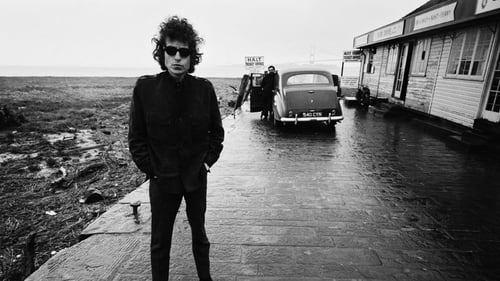
Self (archive footage)
Extraordinaria historia del viaje de Bob Dylan desde sus raíces en Minnesota hasta la época de sus comienzos en los cafés del Greenwich Village, pasando por su sonada ascensión al estrellato del pop en 1966. Joan Baez, Allen Ginsberg y otros comparten sus pensamientos y sentimientos sobre el joven cantante que cambiaría para siempre la música popular. Incluye entrevistas exclusivas y, además, secuencias y actuaciones inéditas.

Self (archive footage)
Documentary about the final five, turbulent years in the life of civil rights activist Martin Luther King. The story begins at the Lincoln Memorial in August 1963, when a 34-year-old preacher galvanized millions with his dream for an America free of racism and comes to a bloody end five years later on a motel balcony in Memphis. King has since become a mythic figure, an activist whose works and image are more hotly contested, negotiated and sold than almost anyone else's in American history. (Storyville)

Self (archive footage)
Documental canadiense dividido en tres partes en la cual se analiza la evolución y el comportamiento de las corporaciones multinacionales modernas.

Oscar nominated documentary short from 2002

Self (archive footage)
Tercera parte de la trilogía formada por Koyaanisqatsi (1982), Powaqqatsi (1988) y Naqoyqatsi (2002).

A Huey P. Newton Story is a 2001 film directed by Spike Lee. It is a filmed performance of Roger Guenveur Smith's one-man show of the same name. Smith sits in a chair on a stage and tells about the past, mostly dealing with Huey P. Newton's life and times.

Self (archive footage)
Fists of Freedom examines one of the 20th century’s most memorable moments — the dramatic “Black Power” demonstration of American sprinters Tommie Smith and John Carlos on the victory stand at the 1968 Summer games in Mexico City. Using rare footage, archival photos and interviews with key figures from the era, revisit a pivotal event in American history.

Self
A revealing portrait of the private life and inner struggles of Martin Luther King Junior, champion of non-violent protest and martyr of the Civil Rights Movement. The film tells the story of Dr. King’s childhood and formative years, his early triumphs for Civil Rights and his personal sacrifices, his wilderness years and his rise to international prominence.
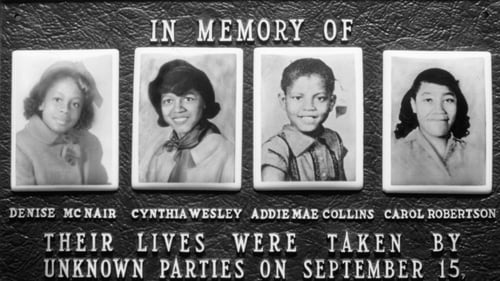
Self (archive footage) (uncredited)
Aclamado primer documental de Spike Lee en donde cuenta los detalles sobre la bomba que, en 1963, se puso en una iglesia de Birminghan que mató a cuatro pequeñas colegialas.

In only 15 minutes with some 30 people Jane Elliott manages to build up a realistic microcosmos of society today with all its phenomena and feelings. As already known from the ill reputed Milgram experiment, even participants who knew the "rules" are unable to remain uninvolved. What starts as a game turns into cruel reality which causes some participants' emotions to erupt with unforeseen intensity

Self (archive footage)
Using government documents, archive footage and direct interviews with activists and former FBI/CIA officers, All Power to the People documents the history of race relations and the Civil Rights Movement in the United States during the 1960s and 70s. Covering the history of slavery, civil-rights activists, political assassinations and exploring the methods used to divide and destroy key figures of movements by government forces, the film then contrasts into Reagan-Era events, privacy threats from new technologies and the failure of the “War on Drugs”, forming a comprehensive view of the goals, aspirations and ultimate demise of the Civil Rights Movement…

Self (archive footage)
Documentary film focuses on the Civil Rights leader's many groundbreaking accomplishments. Footage covers Dr. King's war on poverty and his staunch opposition to the Vietnam War. Also included is his stirring "I Have a Dream" speech.

Self (archive footage) (uncredited)
Malcolm Little (1925–1965) nació en Omaha (Nebraska). Su padre, ministro baptista, murió siendo él niño, y su madre acabó en un psiquiátrico cuando el Ku Klux Klan incendió su casa. Después de ser rechazado por el ejército, cayó en la delincuencia y fue a parar a la cárcel. Allí se convirtió al Islam y cambió radicalmente su vida, convirtiéndose pronto en un carismático líder del movimiento de liberación de la comunidad negra norteamericana.

Self (archive footage)
DEATH SCENES II continues the exploration into the dark recesses of violence and rage that ended in such heinous crimes as the Manson Family's assault on society. You'll see the gruesome aftermath of mob reprisals, public executions and international terrorism. DEATH SCENES II uniquely ushers the brave and curious into a spellbinding trip through the reality that is our world today.
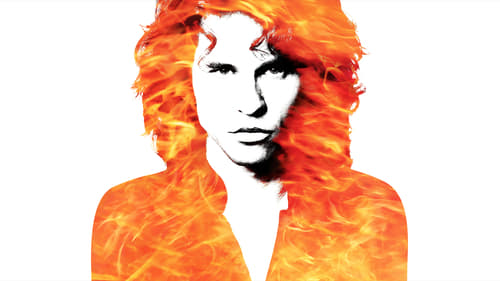
Self (archive footage) (uncredited)
Jim Morrison, cabeza visible de The Doors, para muchos fue un regalo de Dios; para otros, un vástago del Diablo. Vivió al límite, en una anárquica carrera autodestructiva salpicada de escándalos y arrebatos de ira y de pasión que lo hundieron en un abismo de sexo, alcohol y drogas.

Himself (voice) (archive footage) (uncredited)
Miss Daisy (Jessica Tandy), una antipática profesora jubilada de 72 años, decide comprarse un coche. Su hijo (Dan Aykroyd), temiendo un posible caos circulatorio o, peor aún, un accidente, contrata a un chófer negro (Morgan Freeman) para que conduzca el vehículo. Al principio, la anciana y el tranquilo conductor no se llevan demasiado bien.
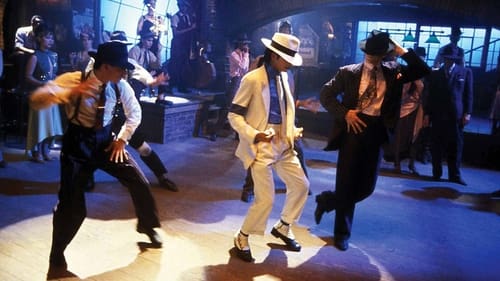
Himself (archive footage)
Michael, el héroe definitivo, se enfrenta con todas sus fuerzas al villano Mr. Big, cuya suprema ambición es apoderarse del mundo, logrando que los escolares consuman drogas. En el curso de esta terrible lucha, y mientras los seguidores de Mr. Big intentan eliminar a Michael, tres niños, Sean, Katie y Zake, son testigos de sus milagrosas transformaciones y su victoria final. Un cómic con estética videoclipera realizado a mayor gloria de la estrella del pop Michael Jackson, que se interpreta a sí mismo y que muestra aspectos de su vida, sus sueños y su música. Articulado a modo de Sketches, destaca el último de ellos que muestra a Jackson erigido en una especie de superhéroe galáctico que combate a las Fuerzas del Mal, episodio en el que aparece Joe Pesci y varios niños.

Self
Personal comments from family, friends, and advisors fill this remarkable documentary honoring Dr. Martin Luther King, Jr. Coretta Scott King joins the Reverend Ralph Abernathy, Julian Bond, Jimmy Carter, the Reverend Jesse Jackson, Senator Edward Kennedy, John Lewis, Bishop Desmond Tutu, and Andrew Young, who recall Dr. King's career and trace his leadership in the civil rights movement. Includes portions of his "I Have a Dream" speech.

Self (Archival Footage)
Walter Williams critiques the war on poverty, schooling, and more in this public television documentary based on Walter Williams' book 'The State Against Blacks'.
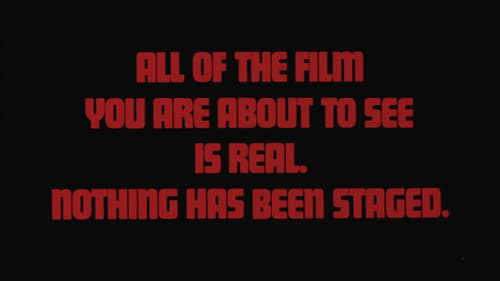
Self (archive footage)
Muestra el desmoronamiento de los valores de la sociedad norteamericana desde mediados del siglo XX hasta principios de los 80, centrándose en la espiral de violencia que recorre el país, y para ello nos muestra una senda donde la moral y la ética parecen brillar con luz propia, mostrando una serie de acontecimientos clave en el desarrollo de la nación tanto a nivel político como en lo más profundo de la subcultura americana.

Self/Cameo (archive footage)
In the second film, the author tells about the struggle of blacks for the right to feel equal with all US citizens. Commentary of the mayor of Cairo, one of the cities in the American South, about the suppression of the rebels, about the most brutal methods of fighting African American protesters. Jesse Jackson's speech. Jesse Jackson's commentary on the Black Rights Organization. Comments by female residents of Jackson, the capital of Mississippi, on the degree of mental development of whites and blacks. A story about the Ku Klux Klan, about Robert Shelton - the head of the Ku Klux Klan. Speech by American singer and dramatic actor Paul Robson, his commentary. Shots of the Olympics, victories in the competition of black athletes. About reprisals against Negro organizations. The widow of the American writer Ernest Hemingway Mary and the American scientist Henry Winston speak out about support for African Americans and the fight against racism.

Self (archive footage)
A 1964-1973 Retrospective for homecoming POWs.

Self (archive footage)

Self (archive footage)
Constructed from a wealth of archival footage, the documentary follows Dr. Martin Luther King, Jr. from 1955 to 1968, in his rise from regional activist to world-renowned leader of the Civil Rights movement. Rare footage of King's speeches, protests, and arrests are interspersed with scenes of other high-profile supporters and opponents of the cause, punctuated by heartfelt testimonials by some of Hollywood's biggest stars.

Himself
This is a montage of different images from the JFK, Martin Luther King and Bobby Kennedy triumphs and assassinations, all three events being observed by Lyndon Johnson as the dark figure who is plotting the anti-black rights movement.

Himself
Report on the nature of "Black Power," and how it can be effectively used. Interviews with Martin Luther King, SNCC head Stokely Carmichael, Floyd McKissick of CORE, and Charles Evers. Reporter is Sander Vanocur.

Himself
La película es una mezcla entre ficción y documental en la que se nos muestra a una joven, Lena, que analiza la sociedad sueca de los años sesenta. Lena quiere comprender la sociedad en la que vive, sus contradicciones y sus cambios, y se esfuerza por obtener respuestas sobre todas las cosas. Hace preguntas a la gente de la calle, líderes sindicales y políticos sobre temas como la posición de Suecia ante la guerra del Vietnam o ante la dictadura de Franco, sobre la no-violencia o sobre el sistema de clases. Organiza demostraciones públicas y funda un instituto en su propia habitación con el único fin de encontrar respuestas a sus preguntas.

The struggle for civil rights has been one of the most important issues of American life for the last fifty years. In August of 1963, groups from all over the country journeyed to Washington D.C. for a massive demonstration, and this film is a fascinating document of this event. Celebrated filmmaker Haskell Wexler ("Medium Cool") traveled with the San Francisco delegation, photographing and conversing candidly with the participants. He has succeeded admirably in capturing the significance and drama of this historic trip.
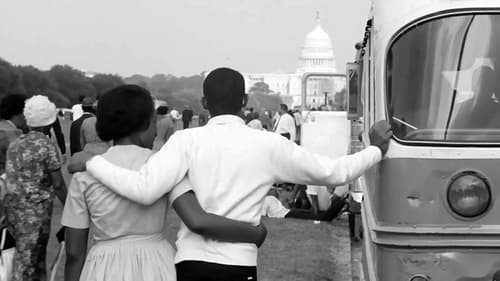
Self
The March, also known as The March to Washington, is a 1964 documentary film by James Blue about the 1963 civil rights March on Washington. It was made for the Motion Picture Service unit of the United States Information Agency for use outside the United States – the 1948 Smith-Mundt Act prevented USIA films from being shown domestically without a special act of Congress. In 1990 Congress authorized these films to be shown in the U.S. twelve years after their initial release. In 2008, the film was selected for preservation in the United States National Film Registry by the Library of Congress as being "culturally, historically, or aesthetically significant". (Wikipedia)

Himself
This film explores freedom of speech in the United States of America

himself
The historic interview that stopped JFK in his tracks...
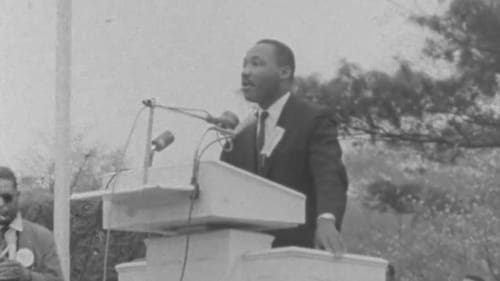
Self
Integration Report 1, Madeline Anderson's trailblazing debut, was the first known documentary by an African American female director. With tenacity, empathy and skill, Anderson assembles a vital record of desegregation efforts around the country in 1959 and 1960, featuring footage by documentary legends Albert Maysles and Richard Leacock and early Black cameraman Robert Puello, singing by Maya Angelou, and narration by playwright Loften Mitchell. Anderson fleetly moves from sit-ins in Montgomery, Alabama to a speech by Martin Luther King Jr. in Washington, D.C. to a protest of the unprosecuted death in police custody of an unarmed Black man in Brooklyn, capturing the incredible reach and scope of the civil rights movement, and working with this diverse of footage, as she would later say, “like an artist with a palette using different colors.”
